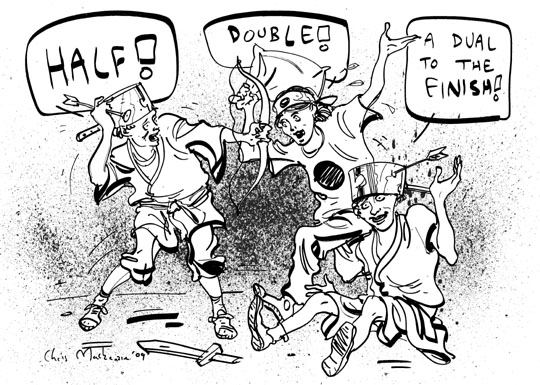Following are some of the responses The Japan Times received on the issues raised in Kristy Kosaka's Jan. 27 Zeit Gist article headlined ""Half, bi or double: one family's trouble":
At the heart of the half/double/mixed conflict is the antiquated notion of pure-bloodedness, which unfortunately has yet to join its meaner older brother, racism, in the ideological junkyard.
The concept of what in the vernacular of half- or double-hood would be a single, whole, pure instance of a Japanese is a thick layer of ideological wax covering 130 million genetically and psychologically distinct people. It's best to dismiss the idea out of hand that you and your partner are two instances of a nationality. You and your partner are unique individuals, as is your child, as is the person you are explaining your child's ethnic history to. I find it's best to remind people of this, to insist on your, your child's, and everyone else's ultimate individuality, rather than to try to find a place for them in an antiquated ideological framework people should be doing their best to shed.


















With your current subscription plan you can comment on stories. However, before writing your first comment, please create a display name in the Profile section of your subscriber account page.